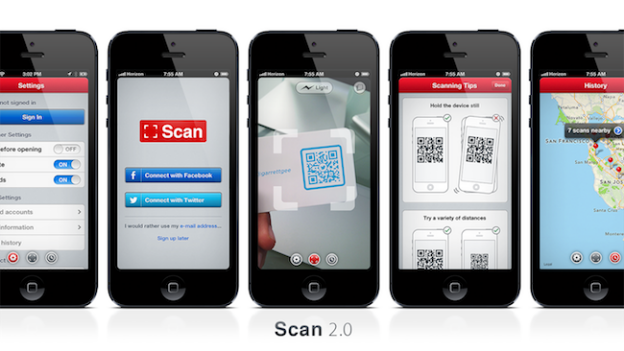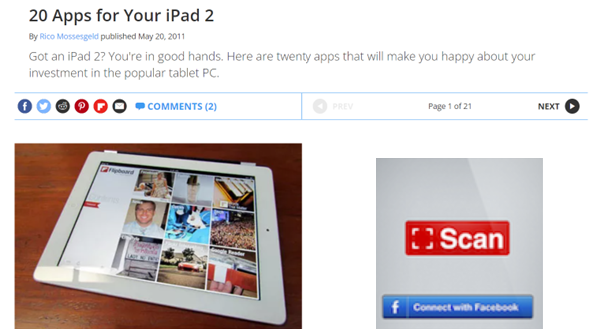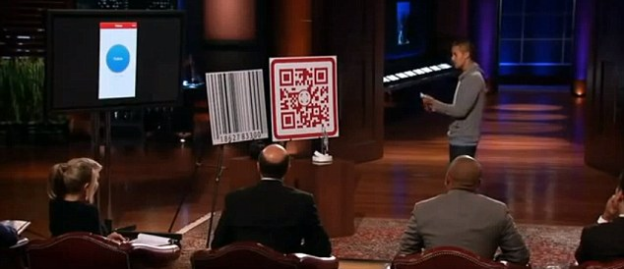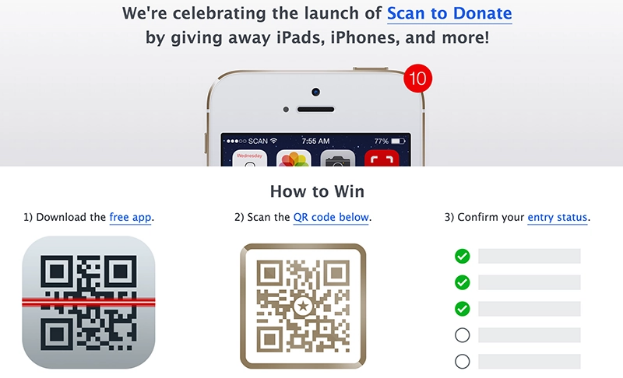A Simple Startup Idea
The founder of Scan App, Garrett Gee, had the idea to start a business when he received his smartphone and scanned a barcode for the first time in 2009. Garrett immediately wanted to create a better tool for working with the increasingly popular QR codes.
Although there were many barcode scanning and reading apps on the market, most of them were cumbersome and difficult to use. Garrett Gee's Scan App was launched in 2011, allowing users to scan QR codes and barcodes quickly, with a friendly and easy-to-use interface.

Without downloading multiple applications, with just Scan, users can scan a variety of codes with their mobile phones, including QR codes, UPC, EAN and ISBN… making the application extremely useful for many different purposes, such as comparing prices while shopping, accessing product information or even scanning codes to buy event tickets.
The plan "on the shoulders of giants"
In February 2011, Apple once again made waves in the technology world with the iPad 2 model, following the success of the first tablet model.
Having witnessed many Apple product launches, Garrett realized the content trend after an Apple product launch, first there would be a series of articles reviewing, scoring, experiencing… and then articles introducing must-have applications on the iPad when the number of users increased and there was a need for reference.
Therefore, Garrett and his team quickly completed the application and waited for the right time to launch it to "take the spotlight".

As expected, just a few days after the iPad 2 was released, Scan was also published and listed in the "iPad Apps" category. With its easy-to-use interface, Scan was quickly reviewed by many technology blogs, becoming a "top app" and making it onto the "must-have app" list on many different websites.
In just three months, Scan had over a million installs and reached 25 million downloads by the end of 2012. The Scan app was constantly updated with new features, including the ability to scan new types of codes and automatically generate QR codes to link to personal social media accounts.
Brilliant Strategy
With an impressive number of users in a short period of time, Scan quickly raised $1.7 million in 2013 from a group of investors, including Google Ventures. As soon as the deal was "closed", Garrett guessed that TechCrunch, and more specifically journalist Alexia Tsotsis, would be the one to write about this deal.
Despite the objections of the Marketing department and investors, Garrett tried every way to contact journalist Alexia, from personal phone numbers, letters to social media accounts... After a series of efforts, TechCrunch arranged a meeting with Garrett, helping the article later own a lot of content beneficial to Scan.

In season 5 of the reality show Shark Tank, Garrett Gee appeared and confidently raised $1 million for 5% of Scan's shares, bringing the app's valuation to $20 million. Despite receiving many compliments and attracting the attention of the "sharks", the valuation was considered too high, causing the "TV fundraising" to fail.
However, Garrett Gee once again demonstrated his ability to take advantage of the show to promote Scan's growth. According to the experience of many former contestants, the Sharktank organizers always carefully screen the images and information shown on the show, ensuring that no contestant can take advantage of Sharktank for personal purposes.
However, thousands of viewers watching Garrett Gee's live fundraising were able to scan the QR code on the screen and easily download the app. This strategy attracted tens of thousands of new downloads, bringing daily advertising revenue to $1,000.

According to some experts, Garrett was quite "cunning" when he inserted his own link into the QR code placed in the introduction board. However, during the filming of the program, Garrett proactively did not link to any specific website to fool the organizers. Only when it was broadcast, the link was activated and led to the Scan application download page.
Near the end of 2014, Scan was acquired by Snapchat for $54 million, an impressive figure for an application only 3 years old, becoming a classic example of simple startup ideas but excellent execution.
